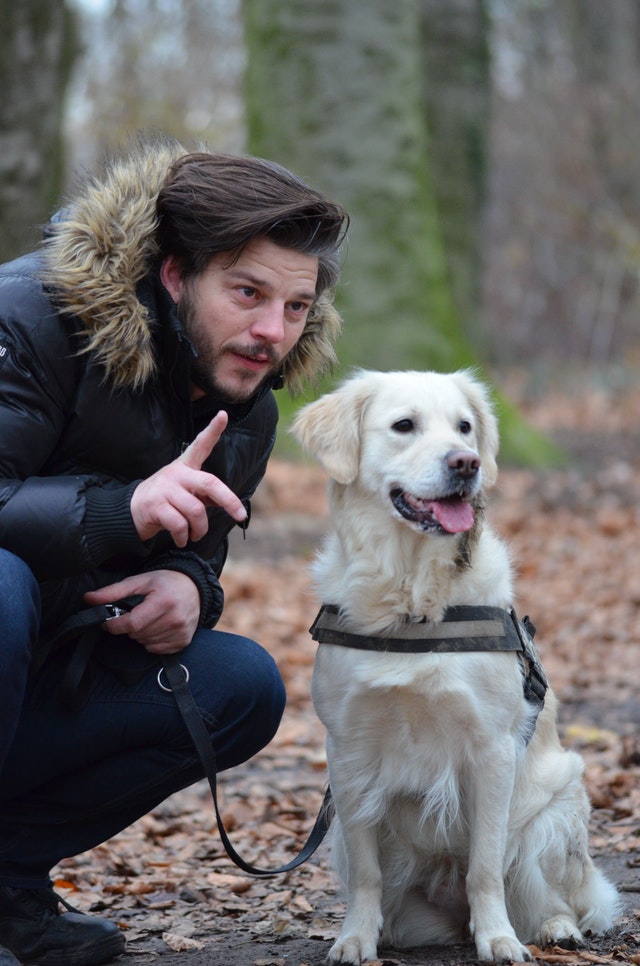
Dogs have always been a part of my life whether it be volunteering and fostering with rescues, working as an adoption counselor or dogs being a fixture of our family. I grew up in a home where dogs were punished for poor behavior to include a swat on the rear or being told “bad dog” hours after an accident was found in the house. I was raised under the old school thought that dogs are fully aware of what they are doing and continue to remember those actions, even hours or days later. Years later, working as a behavioral trainer, I couldn’t have more opposite thoughts.
Adult education has always been a passion of mine. Working in the prenatal health care field, I have spent years educating new and expecting parents how to communicate with their newborn. I remember a new mom that came to me and was frustrated that she couldn’t understand her baby’s cries. She should know how to tell when they are hungry, tired, etc. I explained to her that they were often like fire alarms. Sometimes you don’t know why the smoke detector is going off and other times you’re aware of what’s burning on the stove. I often look at dog behavior in the same light.
Dogs are great thinkers! They can process and work through complex situations in many situations. This is if they are feeling functional. Dogs don’t have the capability to be stubborn, feel guilty, be jealous or be vindictive. There are probably many of you shaking your head at this previous sentence, but I challenge you to think about it. Think about how much higher level, emotional processing and planning must occur for you to think back on your amazing, human, longer term memory to feel guilty. Think about how some people premeditate how to get back at someone. Our dogs are smart, but this is beyond their processing capabilities. They are more of an in the moment type, hence sometimes react in “inappropriate” manners such as an infant or toddler would.
As a trainer, I encourage my clients to communicate with their dogs and not think in terms of dominating the dog. This doesn’t work well typically in human relationships as well as human to animal. Having a conversation where the human truly “listens” to their dog by watching body language, eye contact, etc., can alleviate many occasions where you and your dog may possibly fail in an environment. Having the ability to stop a behavior from occurring prior to the incident is key. Much like watching the feeding cues of a newborn and catching them before they are crying (fire alarm). Learning what your dog’s nervous signals are and having the two-way relationship that is based on trust with each other on how it will be handled sets you and your dog up for success in those tough moments.
Grisha Stewart, behavioral trainer, and creator of BAT training for reactive dogs said one of my favorite quotes of “your dog has a mind of its own and a heart of its own, so pay attention.” Listen to your dogs. Truly listen to them. They “talk” to us more than most of us realize. Your dog will thank you for it and your relationship is guaranteed to be even better with them!

